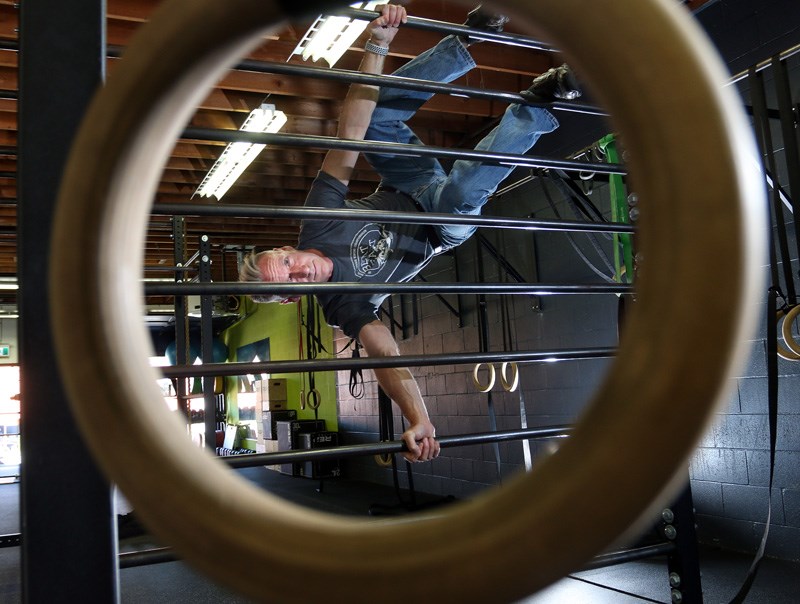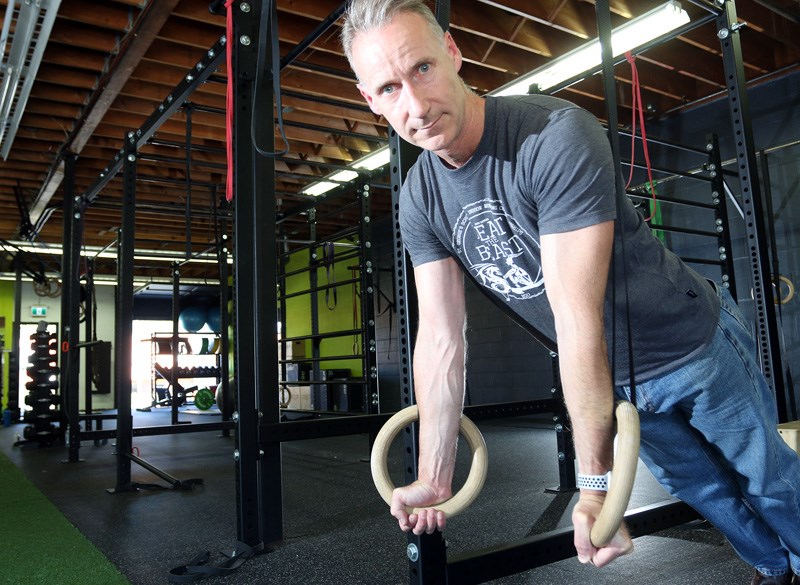The owner of a gym in Port Moody says his business is being crushed by the COVID-19 pandemic. And he’s sounding the alarm other businesses will be in for a reckoning of their own as government support programs expire and opportunities to serve customers outdoors diminish with the onset of colder, wetter weather.
Darren Radford said membership at his year-old Gravity Laboratory gym on St. Johns Street has shrunk from 234 to just 54 and revenue is down 90% as high school and community sports teams opt out of fitness coaching and training programs he offers. With cases of the virulent respiratory virus on the rise again and assistance programs like rent relief coming to an end, it’s only going to get worse before it gets better, he added.
Radford said independent enterprises are especially vulnerable as they try to walk a tightrope between staying open under severe customer restrictions and limited revenue, or taking on debt with no certainty of when business will improve to allow them to repay those loans.
In fact, a survey conducted by the city of Port Moody earlier in the summer identified fitness and wellness businesses, as well as restaurants, as particularly vulnerable should the public health crisis have a second wave in the fall.
The city’s manager of economic development, Joji Kumagai, said his department is “working on a bunch of different things” to support the business community, like advocating to senior levels of government the imperative of extending assistance programs.
But, he admitted, “if a second wave comes, it could be very damaging.”
Coun. Hunter Madsen, who chairs the city’s economic development committee, said initiatives like “shop local” programs co-ordinated by the Tri-Cities Chamber of Commerce, can only do so much.
“We’re trying to find direction for things the city could be doing,” he added.
Gravity Laboratory has rolled out a number of health and safety measures, from limiting occupancy to 10 at a time and taping off safe zones to constant sanitization and the launch of a home fitness app.
But Radford said mixed messaging from public health officials who support some indoor activities while dissuading others only heightens fear and anxiety. And that’s rendered some of the safety measures that he has taken almost meaningless.
“Our customer base hasn’t come back,” Radford said, adding he’s reassessing his business’ viability every two weeks and hopes he can hang on though November.

The cost of business failures goes beyond more empty storefronts with ‘For Lease’ signs affixed to the windows, Radford said.
“If people don’t have the facilities, what does it do to the fabric of the community?”



